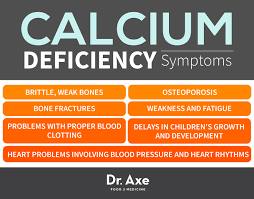Study of Iron on fertility
Study of Iron on fertility
Brought to U....http://successgain.us and http://successgain.info
My memories
Study of Iron on fertility
Posted in 2011
2... The women answered detailed questionnaires about their health, including diet and other aspects of their lifestyle. Doctors found that women who reported taking iron supplements were 40 percent less likely to have infertility problems due to ovarian failure.
3... Given these findings, the obvious assumption is that taking iron supplements would help prevent infertility or perhaps even improve fertility in women who are currently struggling to get pregnant.
4.... The new research is based on the long-running Nurses' Health Study, a large study of female nurses in which they respond to a survey every two years whose questions touch on breast cancer, pregnancy, the number of Tylenol they take, how much soda they drink, and more.
5.... The survey allows scientists to examine the relationship between different health and lifestyle factors, such as whether drinking coffee is linked to diabetes (it isn't, says the study) or whether iron pills help ward off infertility.
6... I advise every woman who is trying to conceive should leave unhealthy habits like taking too much Tea or Coffee or soft drinks etc..
7... Follow healthy habits to conceive.
Brought to U .... http://successgain.us
Brought to U....http://successgain.us and http://successgain.info
My memories
Study of Iron on fertility
Posted in 2011
The only problem is that the Nurses' Health Study is an observational study. No one told these women how much coffee to drink or whether to take iron pills; they made the decisions on their own and scientists observed the outcome.
If women who take iron supplements also happen to have other traits that are linked to good health and fertility, one could mistakenly conclude that it's the iron supplements and not these other traits that affect fertility. Indeed, the scientists have found in this study that women with low iron or who did not take iron supplements also tend to weigh more, smoke more and exercise less -- all variables that can negatively affect a woman's ability to get pregnant.
Researchers try to take these variables into account in their statistical analysis, but it is difficult to account for all relevant behavioral variables. Because of this, two variables that appear to be related in an observational study can turn out not to be related in the way the research indicated.
Historically, the Nurses' Health Study has been wrong more than once. Research from the study had suggested that postmenopausal women who underwent hormone replacement therapy reduced their risk of heart disease, but a carefully controlled study showed that the opposite was true. Hormones actually increased women's risk of heart disease.
The Nurses' Health Study was similarly wrong about vitamin E and women's health. Vitamin E does not help women's hearts as the study had indicated.
Iron and Infertility: What to Believe
Will the study turn out to be correct about fertility and iron supplements? We can't know for sure until a randomized study is done to compare the effects of iron supplements to the effects of a placebo. The authors agreed this is an important next step.
The Nurses' Health Study may be correct, and iron may turn out to be an important factor in fertility, or it may turn out not to matter much if at all. Until then, women who are concerned about their iron intake should talk to their doctors about whether supplements might make sense. Iron is certainly important for good health, whether or not it helps with fertility.
My advise
1.... Iron deficiency may be linked to infertility, suggests a new study in the Obstetrics & Gynecology journal by researchers from Harvard University. The study focused on more than 18,500 female nurses who were trying to get pregnant.2... The women answered detailed questionnaires about their health, including diet and other aspects of their lifestyle. Doctors found that women who reported taking iron supplements were 40 percent less likely to have infertility problems due to ovarian failure.
3... Given these findings, the obvious assumption is that taking iron supplements would help prevent infertility or perhaps even improve fertility in women who are currently struggling to get pregnant.
4.... The new research is based on the long-running Nurses' Health Study, a large study of female nurses in which they respond to a survey every two years whose questions touch on breast cancer, pregnancy, the number of Tylenol they take, how much soda they drink, and more.
5.... The survey allows scientists to examine the relationship between different health and lifestyle factors, such as whether drinking coffee is linked to diabetes (it isn't, says the study) or whether iron pills help ward off infertility.
6... I advise every woman who is trying to conceive should leave unhealthy habits like taking too much Tea or Coffee or soft drinks etc..
7... Follow healthy habits to conceive.
Brought to U .... http://successgain.us




Comments
Post a Comment